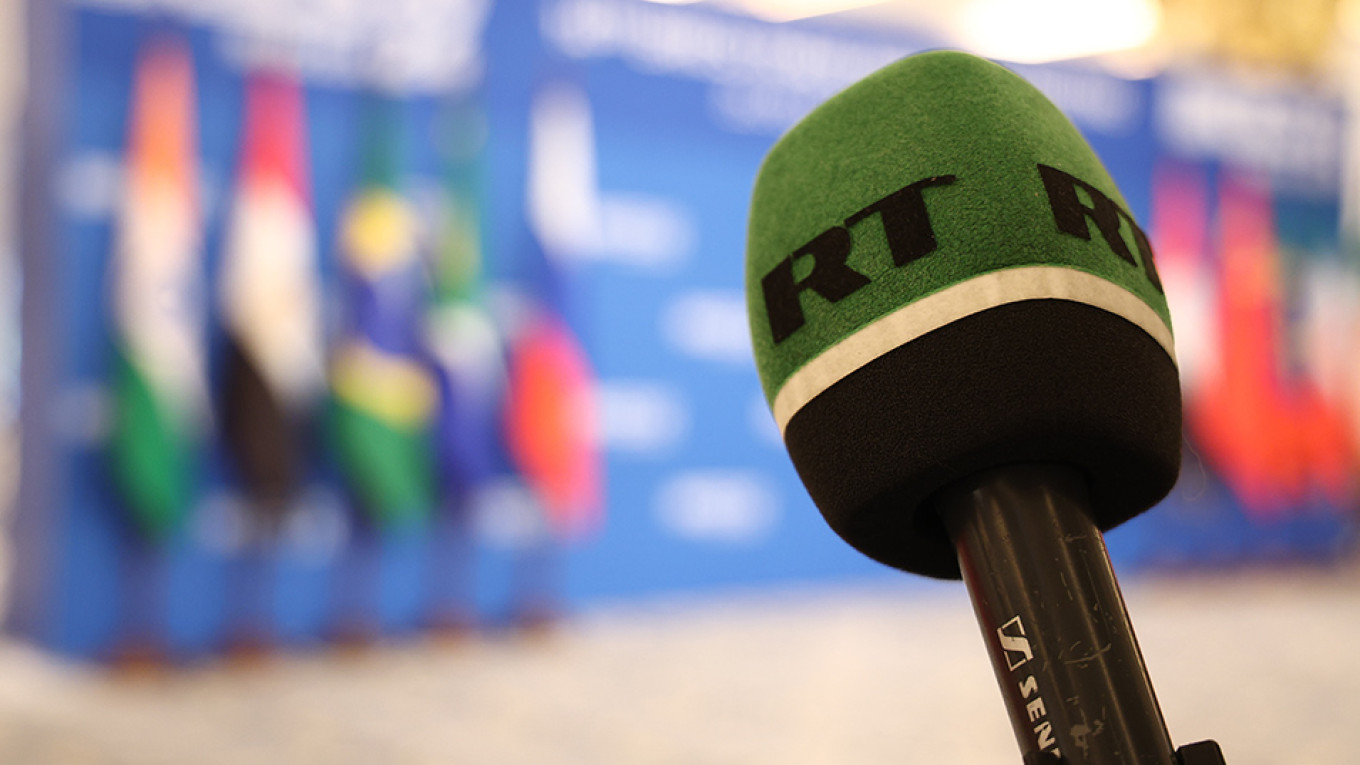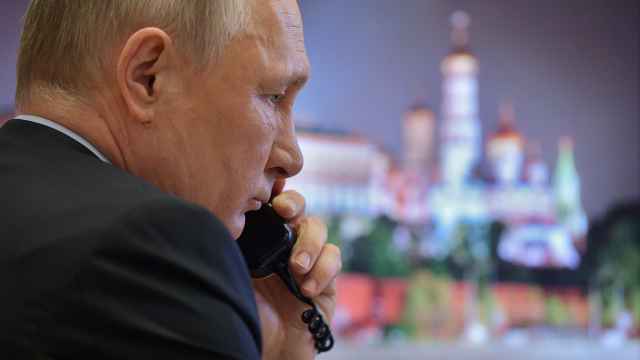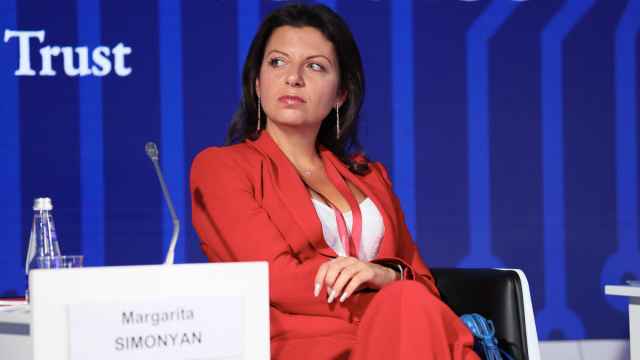“They close entry to us, and we will go through the window. Close the window and we will go through the vents.”
Thus spoke Margarita Simonyan, editor-in-chief of RT, anticipating the inevitable sanctions issued last week when the U.S. accused the outlet of being part of a Kremlin-backed campaign to influence November’s presidential election. Simonyan's personal social media, as well as the accounts linked to RT and Rossiya Segodnya, have also been blocked on Facebook and Instagram.
But while the U.S. seals the cracks in the windows to keep out Russian state-funded broadcasting, the door remains wide open across Africa, Latin America and the Middle East.
Figures regarding audience size are difficult to find and far from reliable, not least because RT’s content is frequently spread across social media — often un-attributed. But the data to which we do have access suggests the existence of a sizable and growing following.
To give a sense of scale, in 2018, RT Actualidad — the broadcaster’s Spanish-language TV channel — had 18 million viewers, while its social media accounts had 25 million followers. Data from a year later puts weekly website visits to RT Arabic at 46.9 million, the outlet boasting five times more Facebook followers than either Al-Jazeera or Al-Arabiya. In 2023 a new bureau was reportedly being set up in Algiers, showing that Russia saw an opportunity to carve out an even larger audience.
Similarly, the growth of RT en francais’ Facebook page was largely due to new followers based in Francophone Africa. After 2022, RT executives reportedly were reaching out to news outlets across the continent to establish strategic partnerships — notably in Mali, whose military government enjoys warm relations with the Kremlin.
Such growth is a relatively recent phenomenon, possibly resulting from RT’s pivot from Russia-centric broadcasting to more local coverage due to a realization that was pithily summarized by Simonyan herself: “Who is interested in watching news from Russia all day long?”
But what is RT actually saying to these relatively newly established audiences?
Consistent with the outlet's founding mission to provide an alternative perspective on world events, the West is unsurprisingly cast as an imperial hegemon, in full control of the international media sphere and intent on retaining its political grip on the world.
However, the exact identity of this “West” shifts depending on location. Analysis from 2020 showed that “EEUU” (the Spanish acronym for USA) was the most-used keyword in RT Espanol’s sub-headlines, while its Facebook page covered the U.S. more than any Latin American country.
In a demonstration of RT's concern with local context, anti-Westernism is equated with anti-Americanism when dealing with an audience likely already mistrustful of the U.S. due to its role in the continent’s recent turbulent and murky political past.
Elsewhere, RT en francais’ coverage of Francophone Africa frequently highlights ex-imperial power France as the primary evil. For instance, over half of the articles covering the Central African Republic between 2018 and 2023 mention France, referring to it as “the old colonial power,” lambasting it for its failed attempts to curb jihadism in the Sahel and casting its contemporary political class as desperate to continue its imperial subjugation of the Central African people.
This local accommodation does not stop Russia from taking a central position in RT’s international coverage. Russia frequently appears as a co-sufferer at the hands of the omnipotent West. In the coverage of the Central African Republic, Russia is cast as the inheritor of the Soviet Union’s anti-colonial legacy and repeated references are made to Russia’s historic “return” to the continent, presumably in an effort to find identification with Central African readers with a recent national history of decolonization.
Russia is also held up as an ideal partner on the world stage. RT Arabic covers growing Russo-Saudi tourism links. RT Espanol deals with apparent U.S. attempts to impede the tightening of Russo-Argentine relations and Bolivia’s aspirations to join BRICS.
RT mirrors its sponsor nation in its identity as an embattled underdog – a role that was easy to emphasize in its coverage of the sanctions directed against Russia. This included articles dedicated to Foreign Ministry spokesperson Maria Zakharova’s claims that the U.S. was trampling on freedom of speech and generally bolstered RT’s constructed identity as “just guys who tell the truth,” as described by Simonyan when the outlet’s social media pages were blocked on Tuesday.
Of course, many countries broadcast news internationally. There is the BBC, CNN, Deutsche Welle, CGTN, France 24 … the list goes on. Arguably these help to mold public opinion abroad, or at least offer a somewhat favorable image of their sponsoring nation.
This is why it is difficult — except in cases of disinformation — to label Russia’s media presence in the Global South as a problem in need of solutions. To use this language merely supports the contention that the West is intent on maintaining hegemony.
Dr. Dani Madrid-Morales, a lecturer in global journalism at the University of Sheffield, suggested the most important thing was that the audiences being targeted have their own voice, that the West should “let citizens make up their own minds” and accept the fact that there might be a “multiplicity of views” resulting from the coverage which they consume. Moreover, if audiences across the Global South find a Russian version of world events more compelling or attractive, bans and sanctions would do little to counter that.
Even when Latin American fact-checking organizations were asked in 2023 whether shutting down RT Actualidad was a potential solution to misinformation, the suggestion was shot down as they pointed out that this would merely bolster the network’s claim that the West does not want audiences to hear the truth — something which only RT can be trusted to provide.
Nonetheless, whilst attempting to muzzle RT’s operations in the Global South is clearly not a viable nor logical step, that isn’t to say we should ignore the phenomenon entirely.
Thirty-five countries abstained from the UN’s 2022 resolution to condemn Russia’s invasion of Ukraine and a reported 36 countries have expressed an interest in joining BRICS. These are the signs of a shifting world order. If we are to understand how and why these changes are taking place, a good starting point would be to focus on how Russia is narrating world events to various countries across the Global South, and thus learn why it has been so successful in capturing their attention.
The alternative is to remain arrogantly ignorant, a privilege which we cannot afford in these uncertain times.
A Message from The Moscow Times:
Dear readers,
We are facing unprecedented challenges. Russia's Prosecutor General's Office has designated The Moscow Times as an "undesirable" organization, criminalizing our work and putting our staff at risk of prosecution. This follows our earlier unjust labeling as a "foreign agent."
These actions are direct attempts to silence independent journalism in Russia. The authorities claim our work "discredits the decisions of the Russian leadership." We see things differently: we strive to provide accurate, unbiased reporting on Russia.
We, the journalists of The Moscow Times, refuse to be silenced. But to continue our work, we need your help.
Your support, no matter how small, makes a world of difference. If you can, please support us monthly starting from just $2. It's quick to set up, and every contribution makes a significant impact.
By supporting The Moscow Times, you're defending open, independent journalism in the face of repression. Thank you for standing with us.
Remind me later.








